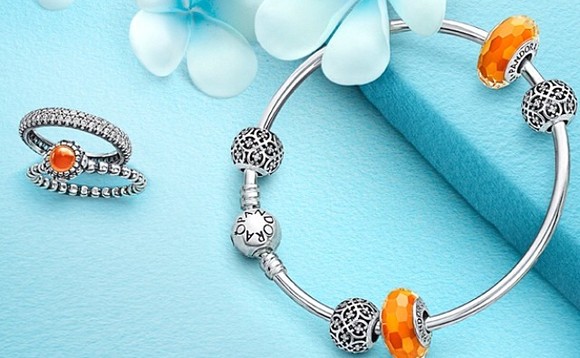
After the IPO: Keeping the lid on Pandora’s box

Private equity is often accused of abandoning portfolio companies at the earliest possible opportunity post-IPO. Mikkel Stern-Peltz takes a look at Pandora – one of the most profitable exits in Europe – and how Axcel resisted temptation to jump ship once the jewellery-maker hit choppy waters after it went public.
With EQT's recent IPO of Norwegian sporting goods retailer XXL, 2014 rises to the top of the charts for Nordic flotations in the past five years, with eight private equity exits through IPOs this year, compared to the previous apex of seven in 2010.
The public perception of private equity-led IPOs has taken a hit over the years, and GPs are often criticised for dumping their newly listed shares at the earliest opportunity, leaving investors with a sinking feeling that maybe the ship they had been sold was not as sea-worthy as promised when it floated.
Danish jewellery business Pandora was listed by Axcel in 2010 and eventually returned an estimated 40x money, making it one of most successful exits in European private equity history.
Diamond in the rough
However, life after listing was not entirely smooth sailing for the GP, and Pandora still attracts headlines four years on.
Nordea, the bank leading the IPO, was fined by the financial conduct authority for failing to disclose it had an ownership stake in Pandora through its investment in the Axcel fund.
Most recently, former head of Asda and Royal Mail, Allan Leighton, left Pandora just a year after being appointed CEO. His replacement, former Scandinavian Tobacco Group CEO Anders Colding Friis, will be the fifth leader of the company in four years.
Leighton has also been named in an investor lawsuit against Pandora, claiming it had withheld information ahead of a profit warning in 2011.
Though the company performed phenomenally after listing, share prices plummeted following the profit warning and Pandora's management was heavily criticised. Much ire was directed toward Axcel, which held two seats on the board and a substantial stake in the company, by people claiming it had over-hyped the jeweller ahead of the IPO.
As good as gold
Axcel chose to stay as an active part of management to help its investment weather the storm, but partner Nikolaj Vejlsgaard says some may consider it an odd choice, since Pandora had been listed and the GP had made a good return once the troubles hit.
"Really, we could have been indifferent, but we aren't. Partly, we had some money on the line, but we also had a feeling of responsibility for the company – and then you have to put your work boots back on," says Vejlsgaard.
Though the Danish GP's stake is now less than 4%, both Nikolaj Vejlsgaard and managing partner, Christian Frigast, remain active on the board, as they have been throughout Pandora's troubles.
Frigast recently underlined his commitment to his firm's star investment, saying he would stay on the board as long as shareholders wanted him, to ensure continuity in the management.
Divestment dilemma
One of the worries investors face with an IPO is the question: if the company has good growth prospects, why are the owners selling it?
If GPs divest as soon as their lock-up periods runs out, it poses questions about the long-term quality of the company and leaves the industry potentially looking like profiteers if the stock drops.
Pandora's developments in late 2011 did affect how private equity was seen by the public, who questioned "whether GPs were the type to just float anything and then run away", as Vejlsgaard puts it. "It's up to us to take on the responsibility and make things work again."
There is a case to be made that committing to a portfolio company after it goes public will fortify investor confidence, in addition to improving the credibility of private equity so investors will want to return for future flotations.
But it is not just about investor confidence. As the Pandora case shows, a well-managed company will also reap profits for GPs. The Danish jewellery maker's stock has soared since its 2011 low, currently trading over DKK 420 – twice the price it was listed at – and Vejlsgaard says the firm is in no hurry to sell its 4% holding: "It's a good business, and we like the stock."
Private equity firms have previously been accused of bailing on troubled companies after profiting from an IPO: the infamous Debenhams IPO in 2009 caused a lot of animosity towards the industry, and Pandora's profit warning in 2011 suggests that distrust of private equity still lurks below the surface.
"Of course cases like this do leave a mark, and I think some of our colleagues who listed Matas, OW Bunker, ISS and so on have had an eye on whether there was a little bad-will as a result of Pandora's development at the time," Vejlsgaard says.
"If there was any bad-will towards private equity, I hope it has been righted by how Axcel acted and worked with Pandora in the time since."
In their own words: Axcel's ownership of Pandora
Nikolaj Vejlsgaard, partner, Axcel
"I think if we had presented a case with forecasts like the actual results turned out, not a lot of people would have believed us.
"It has been a growth case on nearly all parameters, where Axcel at the same time has made sure to build an organisation and structure that could handle such a strong growth.
"Overall there was just a really good foundation. Many of the things we planned to accomplish with the founders were accomplished. At its base, Pandora was a fantastic business with a great product and good value chain in terms of design, production and distribution, which was a sensible platform to build on.
"The different areas within the business we worked on all worked out great, including expanding production and developing Pandora's products. We moved closer to our customers by buying out the company's distributors or taking over distribution ourselves and establishing operations in new markets, which also worked really well.
"One of the reasons many of our plans maybe worked more quickly at Pandora is that we've been through it with other companies in similar industries. We owned Georg Jensen for 12 years and learned some dos and don'ts there we could use with Pandora.
"Of course, you can always find things where you could have done better, especially with the wisdom of hindsight. Overall – especially in the time from our investment to the listing, when we were closest to Pandora – it's difficult to put my finger on something we should have done differently.
"After the fact you'll always be thinking 'yes, but we could have done...', especially regarding the profit warning and so on, but overall there are not a lot of things where we've thought 'that was a mistake', or 'we did this wrong'.
"The company has – with its history for better or worse, and its development – generated a huge amount of attention, without a doubt."
Latest News
Stonehage Fleming raises USD 130m for largest fund to date, eyes 2024 programme
Multi-family office has seen strong appetite, with investor base growing since 2016 to more than 90 family offices, Meiping Yap told Unquote
Permira to take Ergomed private for GBP 703m
Sponsor deploys Permira VIII to ride new wave of take-privates; Blackstone commits GBP 200m in financing for UK-based CRO
Partners Group to release IMs for Civica sale in mid-September
Sponsor acquired the public software group in July 2017 via the same-year vintage Partners Group Global Value 2017
Change of mind: Sponsors take to de-listing their own assets
EQT and Cinven seen as bellweather for funds to reassess options for listed assets trading underwater








